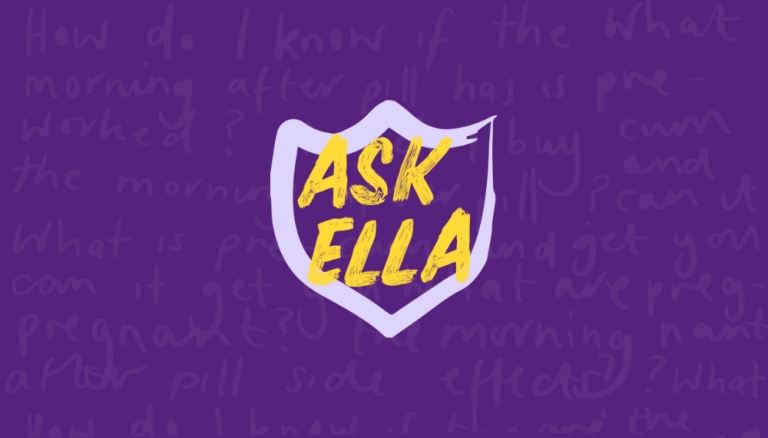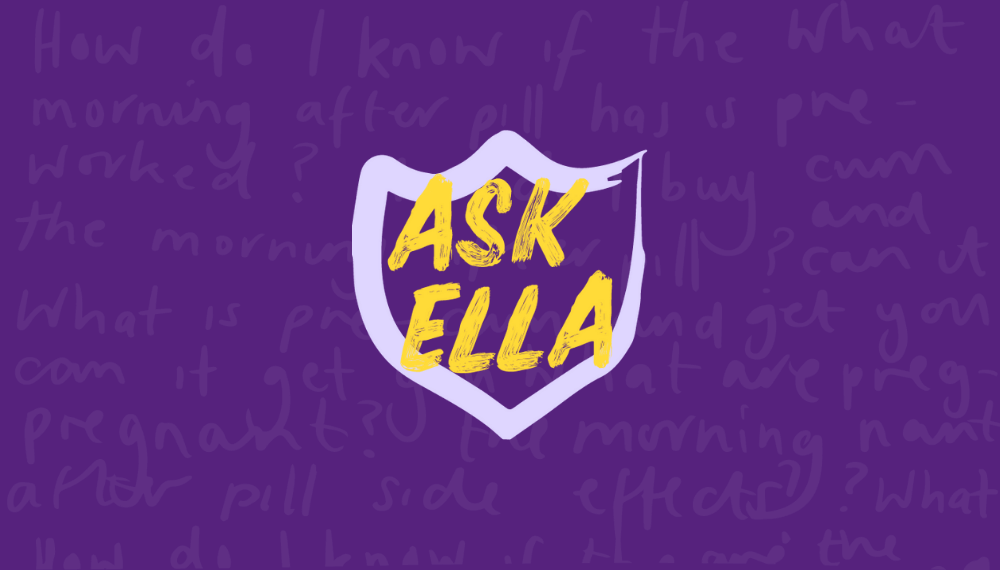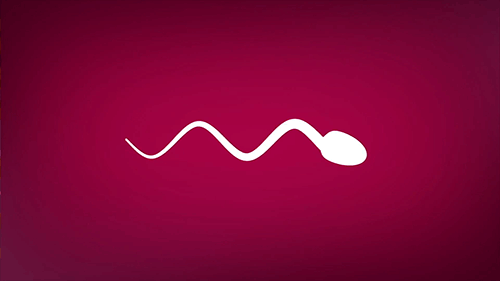How Does Fertilisation Work?
Fertilisation takes place when a sperm, i.e the microscopic cells made in the testes that are in semen (otherwise known as jizz, cum or spunk), enters the vagina, makes its way to one of the fallopian tubes and successfully fuses with an egg.
Eggs live in female ovaries and, during the menstrual cycle, one of the eggs will be released from the ovaries during ovulation and will travel slowly through the fallopian tubes towards the uterus.
How Does Ovulation Work?
The egg’s journey through the fallopian tubes can take 12-24 hours. If sperm gets into the vagina, they will swim up through the cervix and into the fallopian tubes as they look for an egg.
Sperm can survive in the vagina for up-to five days and the egg can be fertilised up-to 24 hours after being released.
While you only ovulate for 24 hours, you may have a 6-day fertile period per cycle, meaning you could still get pregnant if you have unprotected sex 1-5 days before ovulating.
If the sperm finds an egg, they will merge together to form one cell which will then head into the uterus, arriving around 3-4 days after ovulation.
It will then implant into the uterine wall and release pregnancy hormones, which prevents your uterus lining from shedding, meaning you shouldn’t have any more periods until after the baby is born, although some women may experience vaginal bleeding during their pregnancy.
If you experience vaginal bleeding during pregnancy, contact your GP or midwife as soon as possible.
Do You Have To Have Sex To Get Pregnant?
While fertilization normally happens after penis in vagina intercourse, in rare cases someone may get pregnant through precum (i.e. before ejaculation) or if the sperm goes on the vulva or near the vaginal opening.
This can happen if semen is dripped onto the vulva (the external part of the female genitals) or if someone touches the vulva or vagina with hands that have wet semen on them.
How Does The Morning After Pill Help Prevent Pregnancy?
The morning after pill can prevent pregnancy by delaying ovulation, meaning the egg is held back so the sperm will have nothing to fertilise. This is a similar process to some birth control pills, which also prevent ovulation.
While some people believe the morning after pill causes a mini abortion, emergency contraception can only prevent a pregnancy from taking place because it works by delaying the eggs release until after the waiting sperm have died.
Will The Morning After Pill Work After You’ve Ovulated?
If the egg has already been released before the morning after pill is taken, it cannot prevent fertilisation or terminate an existing pregnancy as emergency contraception cannot remove a fertilised egg from the uterine wall.
What Is An Ectopic Pregnancy?
An ectopic pregnancy is when a fertilised egg implants outside of the uterus, usually in one of the fallopian tubes. This happens in approximately one in 90 pregnancies in the UK.
If an egg is stuck in the fallopian tubes, it won’t develop into a baby and can be dangerous for the woman’s health.
Ectopic pregnancies do not always cause symptoms, but if they do they tend to happen around the 4th till 12th week of pregnancy. Symptoms include stomach pain on one side of the lower tummy, vaginal bleeding and discomfort while going to the toilet.
Contact your doctor as soon as possible if you think you could have an ectopic pregnancy as it requires medical attention. For more information, visit the NHS website.
How Likely Am I To Get Pregnant?

The likelihood of getting pregnant depends on the length of your menstrual cycle, when you have sex, when you ovulate and other factors such as your fertility and the virality of the sperm.
If you don’t want to get pregnant, you should use a contraceptive method like birth control pills or condoms.
We spoke to Emma Chan, a medical professional and workshop facilitator at Sexplain, about how conception works and what needs to happen for pregnancy to occur.
How Conception Happens: A Step By Step Guide
In order for someone to get pregnant, four conditions need to be met. “Firstly, an egg must be produced,” Emma explains “Secondly, adequate sperm must be released. ‘Adequate’ means that the number and quality of the sperm in ejaculate must be sufficient to fertilise an egg.”
“Thirdly, sperm must reach the egg,” Emma continues, “lots of contraceptive methods work on this part of the process – for example by preventing sperm from entering the vagina and the womb or by preventing the egg from travelling.”
“Lastly, the fertilised egg must develop into an embryo, which must implant into the lining of the womb. All of these four factors need to align to result in pregnancy.”
Don’t Risk An Unplanned Pregnancy
Not using protection if you don’t want a baby is very risky. “Sperm can live inside the vagina for up to five days,” says Emma, “so penis-in-vagina sex that happens up to five days before ovulation can still result in pregnancy.”
It is also very tricky to pinpoint exactly when you are going to ovulate, so it is very easy to misjudge when you are at a higher risk of pregnancy.
The NHS website states that although the average length of the menstrual cycle is 28 days, they can vary from 21 up to 40 days.
If you have a short cycle, you could ovulate shortly after your period, which means you could get pregnant if you have unprotected sex right after or even during your period.
If you want to avoid pregnancy, use a contraceptive method such as condoms or the birth control pill. Remember that condoms are the only contraceptive method that also protect you from sexually transmitted infections, so we recommend you use them with new partners.
If your regular contraceptive method lets you down, ellaOne is the UK’s no. 1 emergency contraceptive pill brand* which can help protect you from unplanned pregnancy.
ellaOne® 30mg film-coated tablet contains ulipristal acetate and is indicated for emergency contraception within 120 hours (5 days) of unprotected sex or contraceptive failure. Always read the label. *Based on sales data. Verify at ellaone.co.uk/verify








